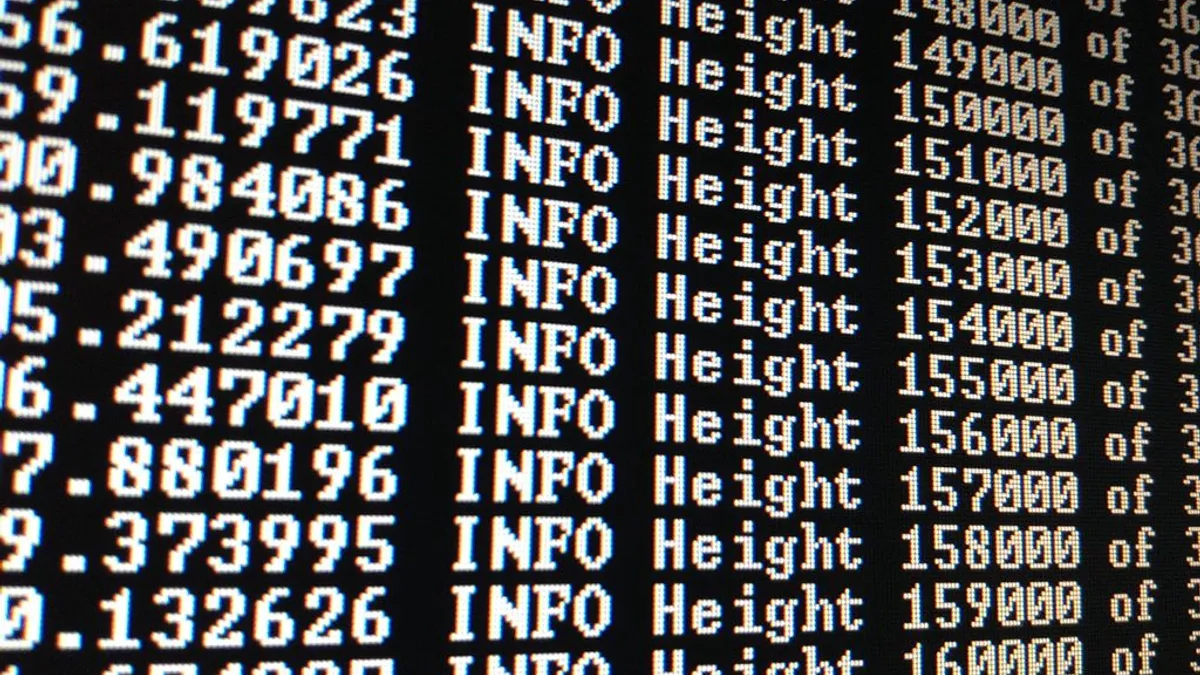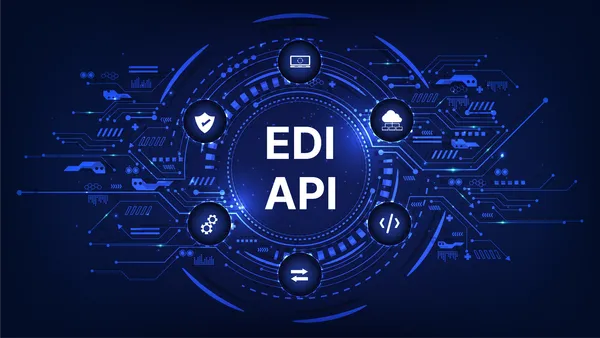Dive Brief:
- Maersk and IBM will soon begin using blockchain to establish a shared, unalterable record of shipping transactions, a Maersk press release reported Tuesday.
- Blockchain will not only power the new platform, but also facilitate the deployment of other cloud-based and open source technologies, including AI, IoT and analytics, in order to enable the more rapid and accurate movement and tracking of goods across international borders.
- Singapore and Peruvian Customs, respectively, are currently considering collaborating with the platform to facilitate trade flows and enhance supply chain security. APM Terminals and PSA International intend to use it to enrich port collaboration and improve terminal planning.
Dive Insight:
Supply chain applications are providing many of the first definitive, productive blockchain applications in business — and, perhaps more importantly, paving the path for future ones, including multiledger systems and identity tools.
IBM has established itself as the strongest blockchain player and is wasting no time beefing up its credentials. Though originally announced in March, the Maersk-IBM partnership is at last ready to launch.
With roughly 200 transactions occurring per shipment, the introduction of blockchain technology as a simplifying agent is ideal for the shipping industry and reflected by the technology's surge in recognition. Its already being used within the food industry to better traceability, combat contamination and offer customers product information.
This pairing is the culmination of nearly two years planning for IBM-Maersk to simplify required transactions and analyze challenges facing the shipping industry.
"As respective leaders in their industries, IBM and Maersk have a long history of teaming up to apply the latest technologies to address challenges, so it is logical that we would pursue this together," Ramesh Gopinath, VP of Blockchain Solutions at IBM told Supply Chain Dive.
"There’s a ton of waste, friction and delay in the industry overall, and we thought that if we could reduce the amount with technologies, including blockchain, it would be beneficial on a broad scale."
He compared tracking containers to consumers tracking packages of products purchased online.
"The global shipping industry transports over $4 trillion worth of goods annually, and we believe that applying blockchain and other technologies will transform the industry and potentially lead to billions of dollars of value created," Gopinath said.












